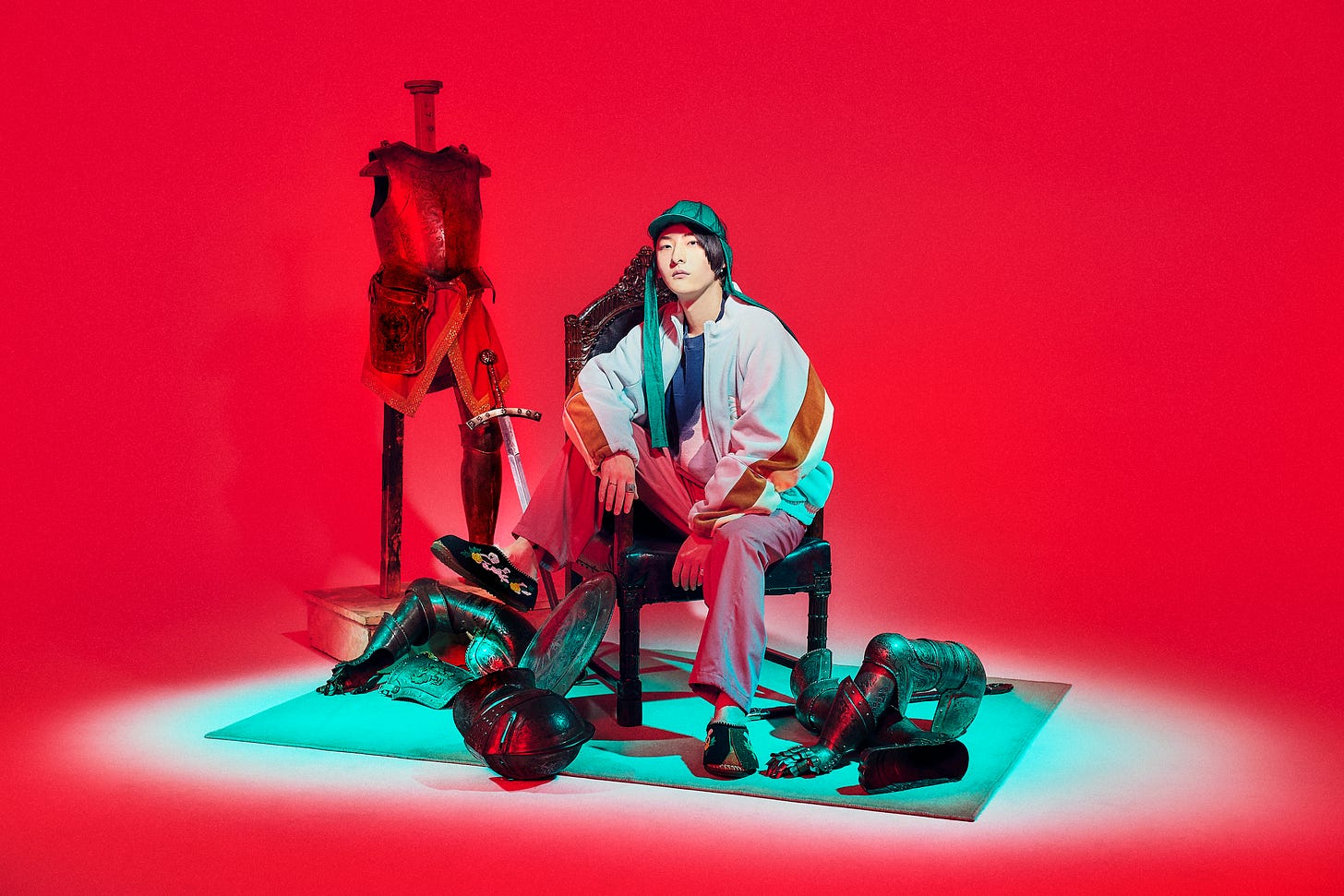q&a: VK Blanka on creating an anime theme song
the singer chatted about his first time in the US and the role of social media in his career
Welcome to an it’s steffi interview! Today I’m here with Japanese singer-songwriter VK Blanka, who has just released his single, “Never Run,” out on all streaming platforms.
Standing on an intimate stage at the Palladium Times Square, singer-songwriter VK Blanka banters back and forth with the throng of fans who eagerly lobby jokes towards him—it’s a small enough venue where you could easily shout the restaurant you wanted him to try during his visit here. It’s also an empty set; he bounces between singing, DJing, playing the piano and guitar. No band, no cookie-cutter backing tracks, just a one-man show with a lot to prove. He rerecorded all of his instrumentals specifically for the tour. This is Blanka’s first time in the United States, his first North America tour, and he thinks New York—and Times Square—is just so cool.
Hailing from Japan, Blanka has begun building a name for himself as the brains behind theme songs for beloved animes like Netflix’s Black Clover (whose fans include one Megan thee Stallion), Shikioriori, Double Decker! Doug & Kirill, and Crunchyroll’s Fruits Basket. The growing international popularity of anime and manga, propelled by the internet, means he’s beginning to get a taste of global recognition for his work. Anime soundtracks, called OSTs, hold a special place in the fandom hearts—Blanka’s colorful soundscapes, in particular, evoke the heroic nature of Asta’s journey through Black Clover or the pensive heartbreak of Tohru in Fruits Basket. He makes epic anthems, standalone bites that overtly explain the themes of the shows, rather than providing supplemental music to the scenes the way Hollywood sound departments often score blockbusters. Much of his work, like his newest release “Never Run,” adopt a similar feeling.
After his first tour, Blanka and I got to meet, and chatted a bit about his first time in the US, the wide-reaching spread of anime, and his point of view on social media as an artist climbing his way into the spotlight.
Steffi: How was your US tour?
Blanka: Awesome for sure! There are a lot of difference between doing gigs in Asia and I loved every feeling that my fans gave to me. They sang with me when I played a couple of ballads—that never happens in Japan, and I felt so comfortable on that.
Was there a place that stood out to you? Any specific memories from the shows?
You know that was my first North America tour and visiting US, so everything was brand new to me. Foods, cultures, the craziness of fans, the habit of tipping [laughs]. Talking about shows, I can’t rank them because every show was incredible!
What are you watching on social media right now?
Tips how to shoot cool videos, montages of League of Legends, insane collections of watches, Charlie Puth’s social media content.
Are there any trends or creators you love?
Godzu on YouTube and OHIO BOSS. Both are crazy!
Do you ever feel any pressure to post on social media as an artist?
Yup, I was. Right now, I feel more relaxed to post things because I noticed that my fans overseas like my more personal content video. So I plan to post more flexible and frank-style posts!
Tell me a little about your process making theme songs, also known as OSTs, for anime — your claim to fame was through creating two songs, “Black Rover” and “Black Catcher” for the well-loved anime, Black Clover.
Melody comes first every time! I’m in a really lucky and honored situation that I can create the song for anime openings. Talking about Black Clover OP10 song (a term referred to the opening song of the tenth episode), “Black Catcher,” I called the team at the time, and I was like, “Hey, let me write the next opening of Black Clover. I promise I won’t let you guys be disappointed. Check the number of my previous opening, “Black Rover.” Bravery [is a constant theme]. That feeling forces me to create melodies, play powerful guitar, or play soft piano every time.
What was the thought process behind rerecording all your tracks for the tour? Was it annoying to do?
[Laughs] No, it was fun to re-record all of my instruments for the North American shows. Because I was totally a stranger, I couldn’t imagine nothing of them, so I wanted to do everything that I could do before the tour!
It’s dull to sing on the karaoke stuff [the backing tracks] on stage. So at least I want to sing on a perfect recording background.
Is there ever a pressure to make your songs TikTok-friendly nowadays?
No, I kept creating short songs before TikTok got trend. So I have no stress to make the songs more compact. In my opinion, we humans have complicated emotions and they force us to write deep lyrics. It’s okay if we now have an easier way to create music with technology because now everybody has the chance to make their own creations.
What do you think about the growth of anime’s popularity in the West, from your perspective?
I’m feeling great, for sure, because anime has helped spread our culture. And our culture can make human cry, cheer, without any barrier of language. That’s beautiful. And it’s a funny story that fans in West will tell me a lot of great points of our own culture. You are the mirror of me. Thank you!
Interview has been condensed and edited for clarity.
More like this:
Q&A with influencer @sourandnasty on beauty in the digital age.
Q&A with writer Nina Kim (Joy Ride, The L Word) on her WGA strike experience.
Skibidi toilet is just a nihilistic version of awko taco.



